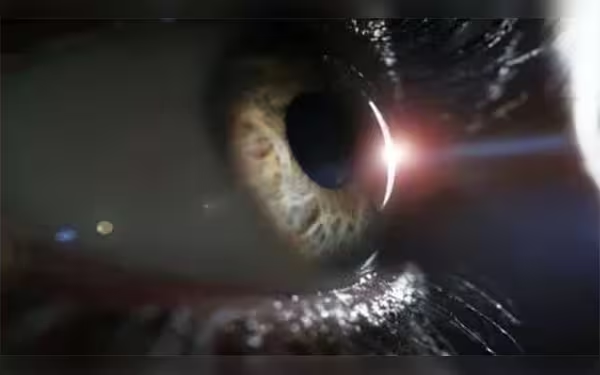Saturday, November 16, 2024 07:26 PM
Neuralink Launches Blindsight Device to Restore Vision
- Neuralink's Blindsight device aims to restore vision.
- Implants microelectrode array in the visual cortex.
- Potential to enhance quality of life for the blind.
 Image Credits: dunyanews.tv
Image Credits: dunyanews.tvNeuralink unveils the Blindsight device, a groundbreaking technology aimed at restoring vision for the blind through brain stimulation.
In a groundbreaking development in the field of medical technology, Neuralink has recently announced the launch of its innovative vision-restoring device, known as the Blindsight device. This remarkable technology aims to provide vision to individuals who are blind, marking a significant milestone in the quest to treat serious health conditions. The Blindsight device is designed to work by implanting a microelectrode array directly into the brain's visual cortex, which is the part of the brain responsible for processing visual information.
The concept of restoring vision through direct brain stimulation is not entirely new, but Neuralink's approach is at the forefront of this exciting field. By utilizing advanced microelectrode technology, the device can potentially bypass damaged optic nerves and directly stimulate the brain, allowing users to perceive visual information in a way that was previously thought impossible. This could open up a world of possibilities for those who have lost their sight due to injury, disease, or congenital conditions.
Neuralink, founded by Elon Musk, has been making waves in the tech and medical communities with its ambitious goals of merging human brains with artificial intelligence. The Blindsight device is a testament to the company's commitment to pushing the boundaries of what is possible in medical science. As the device undergoes further testing and development, it holds the promise of not only restoring sight but also enhancing the quality of life for countless individuals.
While the potential benefits of the Blindsight device are immense, it is essential to approach this technology with caution. The ethical implications of brain implants and the long-term effects on users must be thoroughly examined. Additionally, accessibility and affordability will play crucial roles in determining how widely this technology can be adopted. It is vital that advancements in medical technology do not become exclusive to those who can afford them.
The announcement of the Blindsight device by Neuralink is a significant step forward in the realm of medical technology. It not only showcases the potential of innovative solutions to address serious health issues but also raises important questions about the future of healthcare. As we stand on the brink of a new era in medical science, it is crucial to remain informed and engaged with these developments, ensuring that they serve the greater good of society.













